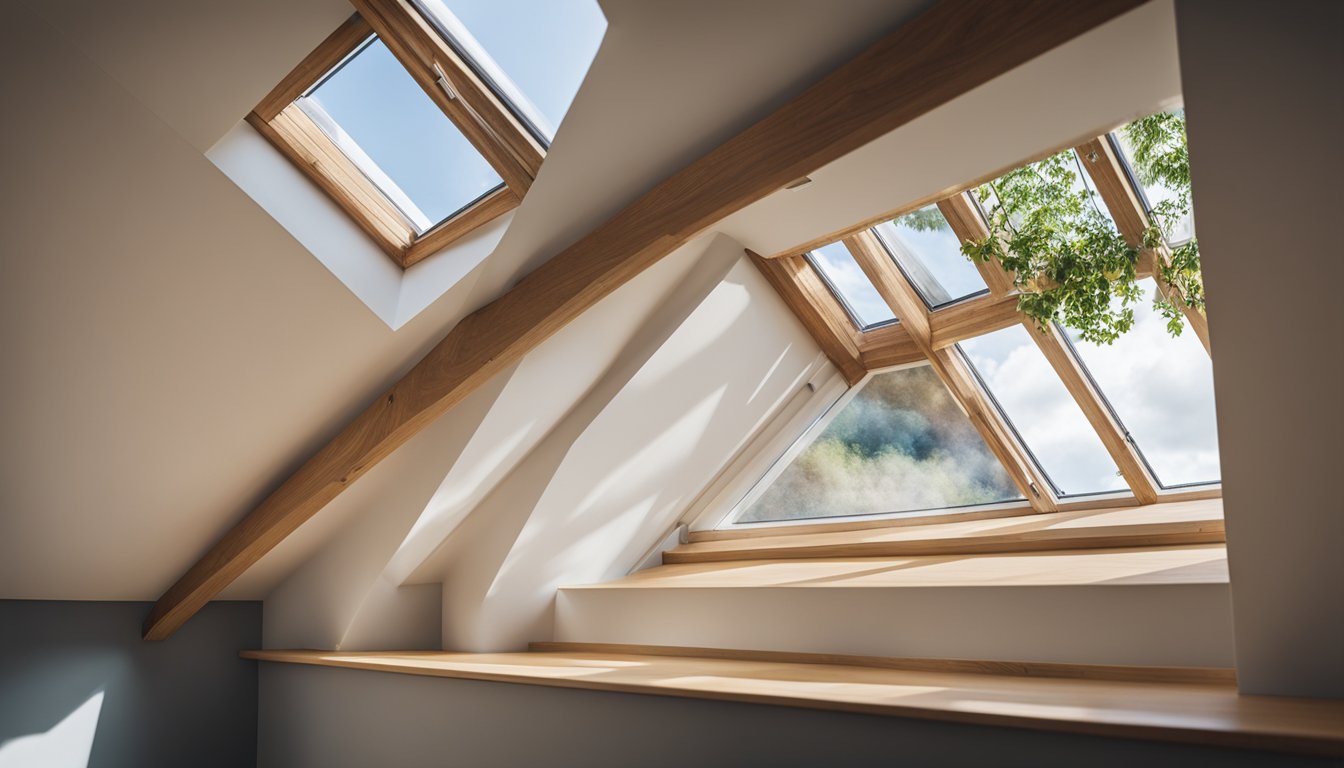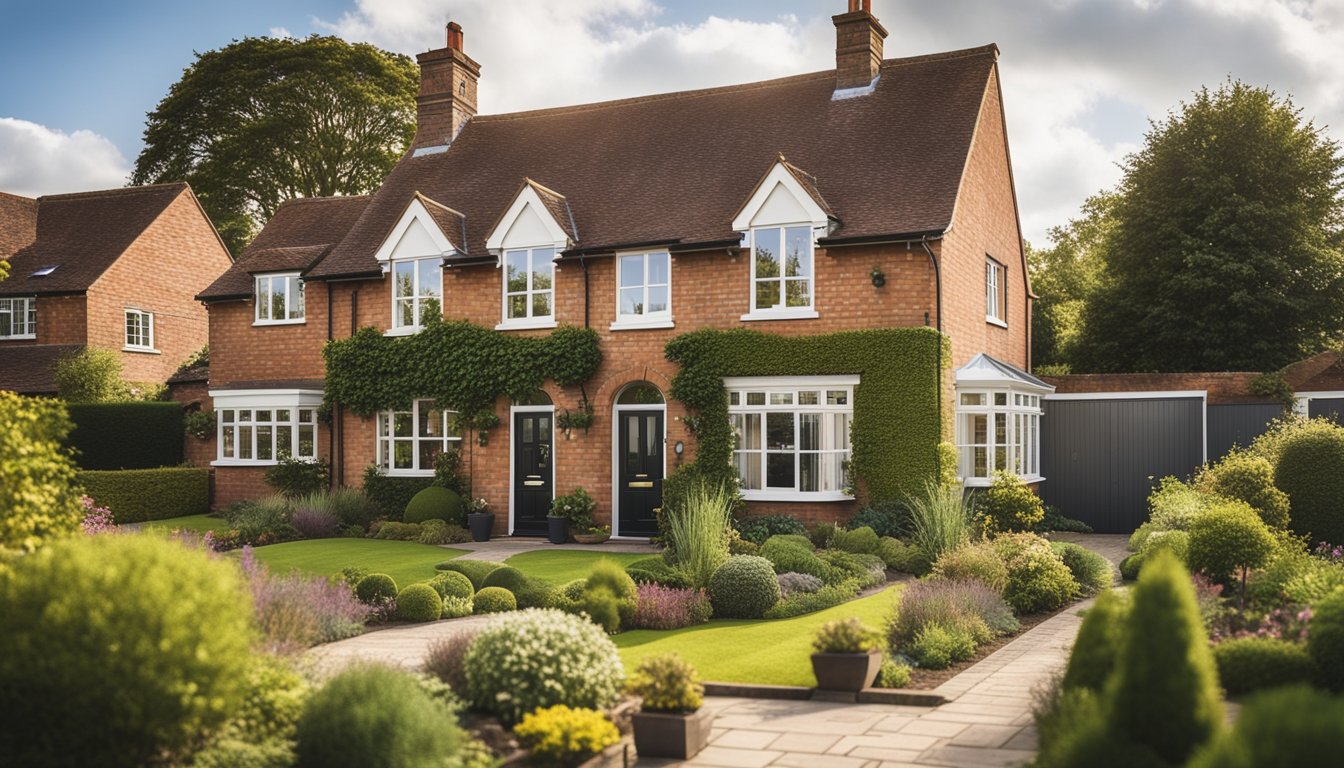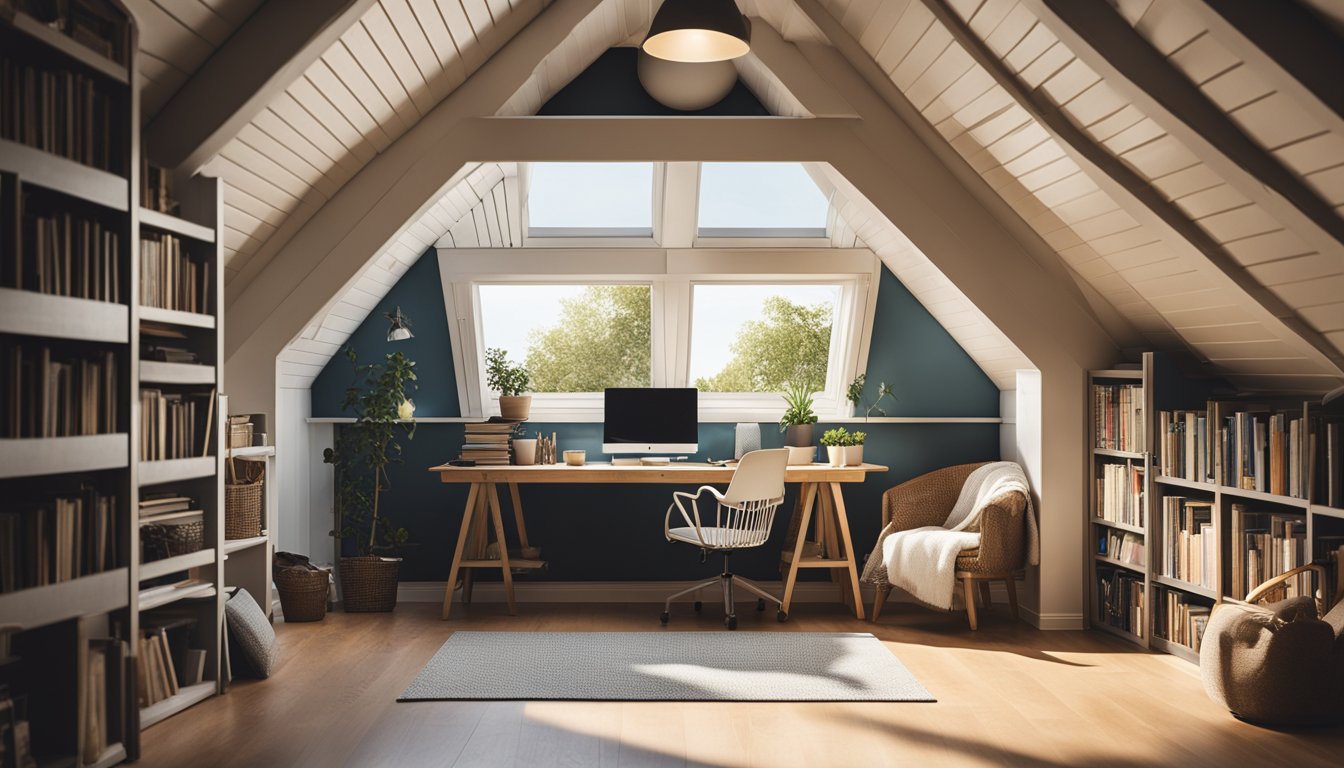Late updated: 14 Jan 2025 12:01
Written by: Oliver Bennett
Innovative Uses For Dormer Windows In UK Homes: Maximising Space and Light
Dormer windows have long held a place in UK architecture due to their charm and functionality. They not only add character to a home but also offer practical benefits like increased natural light and improved ventilation. Among the most innovative uses for dormer windows is the creation of additional living space, transforming ordinary lofts into vibrant and functional rooms.

For those looking to boost their home's appeal and efficiency, dormer windows present exciting design opportunities. Whether it’s a cosy reading nook or a tranquil meditation retreat, the possibilities are endless. With careful planning and creative design, dormer windows can enhance both the aesthetic and practical value of a home.
Let's explore how these clever architectural features can bring a new dimension of comfort and style to our living spaces. By optimising the unique potential of dormer windows, we can significantly enhance our homes.
Key Takeaways
- Dormer windows provide additional living space.
- They help enhance natural light and ventilation.
- Thoughtful design can increase home value.
Design and Planning for Dormer Windows
Our exploration of dormer windows will guide us through the importance of selecting the right type, understanding permissions, and maintaining architectural harmony. Each aspect contributes to enhancing both the functionality and aesthetics of our living spaces.
Understanding Different Types of Dormer Windows
Dormer windows come in various forms, each with distinct characteristics. Gable dormers are common, featuring pitched roofs that add headroom and light. Shed dormers offer a sloping, flat roof, aligning with the main roof's direction for a modern look. More unique are eyebrow dormers, which add subtle curves to the roofline, creating a soft visual effect. The choice of dormer impacts both the building's style and the interior space use, so it’s crucial to select a type that aligns with our design goals and the existing architectural structure.
Navigating Planning Permission and Building Codes
Before adding a dormer, understanding planning permission and building codes is essential. In the UK, dormer windows might fall under permitted development, which simplifies the approval process. However, this depends on specific conditions related to size, location, and property status. If the house is in a conservation area, stricter rules apply to preserve historic integrity. Compliance with structural integrity standards ensures that the roof can support the dormer, safeguarding against future issues. Knowing these regulations helps us foresee potential challenges and navigate approvals smoothly.
Incorporating Dormers into Various Architectural Styles
Incorporating dormer windows involves blending them with the home’s architectural style. For a traditional build, such as a Georgian or Victorian home, gable dormers are ideal, respecting the classic aesthetic. Shed dormers fit well in modern or minimalistic designs, offering a sleek appearance. We can adapt dormers to enhance a loft conversion, maximizing space and light in the attic area. Properly integrated dormers can increase property value by adding character and functionality. Considering our home's visual aesthetics and practical needs ensures that dormers become a seamless architectural feature.
Enhancing Home Value and Efficiency with Dormer Windows

Incorporating dormer windows into UK homes offers significant benefits. These windows enhance both the functional and aesthetic aspects of a property, creating more usable space and improving energy efficiency, while also boosting the home's resale value and curb appeal.
Maximising Space and Light in Attic Conversions
Dormer windows transform attics by creating additional interior space. They extend the roofline, turning a cramped loft into a functional living area. This new usable space could be a bedroom, home office, or playroom.
By allowing increased natural light, dormer windows reduce the need for artificial lighting during the day. As sunlight floods in, rooms feel brighter and more inviting. This amplification of space and light is a key benefit in boosting the interior environment's comfort and usability.
Boosting Energy Efficiency and Indoor Air Quality
Dormer windows play a pivotal role in enhancing a home's energy efficiency. They allow more sunlight, which can lead to reduced energy consumption for heating and lighting. The strategic placement of these windows can take advantage of passive solar heating, cutting back on energy bills.
Improved ventilation is another gain. By opening a dormer window, we can facilitate better airflow, which aids in maintaining a healthier indoor air quality. This increase in air circulation is particularly advantageous in homes where moisture control and air freshness are concerns.
Improving Resale Value and Curb Appeal
The aesthetic appeal of dormer windows cannot be overstated. They add character and depth to a home's exterior, transforming the roofline into a charming architectural feature. This enhancement not only uplifts the visual appearance but makes the property stand out in the neighbourhood.
As a result, homes with dormer windows often enjoy increased resale value. Potential buyers see the additional space, improved light, and enhanced energy efficiency as attractive features worth investing in. Such architectural enhancements can justify a higher listing price, thus contributing positively to the property's market performance.
Frequently Asked Questions

When considering dormer windows, questions often arise about their impact on home aesthetics, creative interior possibilities, and cost-effective replacement. Large dormer windows can offer substantial benefits, while UK regulations and contemporary design trends influence installation and updates.
How can dormer windows enhance the aesthetic appeal of a home's exterior?
Dormer windows can significantly boost a home's curb appeal. Their varied designs, ranging from gabled to eyebrow styles, add architectural interest and create a harmonious blend with the roofline. By breaking up a monotonous roof surface, they add depth and character, appealing to those who appreciate both traditional and modern styles.
What are creative interior design ideas for incorporating dormer windows?
Inside the home, dormer windows can be transformed into cozy window seats, providing a comfortable nook for reading or relaxation. The additional light they bring in makes them ideal for small indoor plant displays. Utilising the walls around dormer windows for built-in storage or shelving can optimise space in creative and functional ways.
What is the most cost-effective way to replace a dormer window?
For budget-friendly replacement, it's often wise to retain the existing window frames if they're in good condition. Selecting energy-efficient glazing options can save on long-term costs. Prioritising standard sizes over custom designs will generally reduce expenses, while sourcing materials locally can also decrease transportation costs.
In what ways can large dormer windows be utilised for maximum benefit?
Large dormer windows can serve as excellent sources of natural light, transforming an attic into a bright, inviting space. They are perfect for home offices or art studios needing ample light. Additionally, the views offered through expansive dormer windows can enhance the living experience, providing a connection to the outdoors.
What are the current UK regulations governing the installation of dormer windows?
In the UK, installing dormer windows often requires compliance with specific building regulations. Planning permissions may be necessary, particularly in conservation areas. Regulations often govern the size and placement to ensure safety and structural integrity. It's important to consult local planning authorities to avoid any compliance issues.
How can existing dormer windows be updated to reflect contemporary design trends?
To modernise dormer windows, consider replacing old glazing with energy-efficient glass. Updating frames to match current design styles, such as sleek aluminium, can offer a contemporary look. Additionally, integrating smart technology like automated blinds can blend classical dormer aesthetics with modern functionality.
